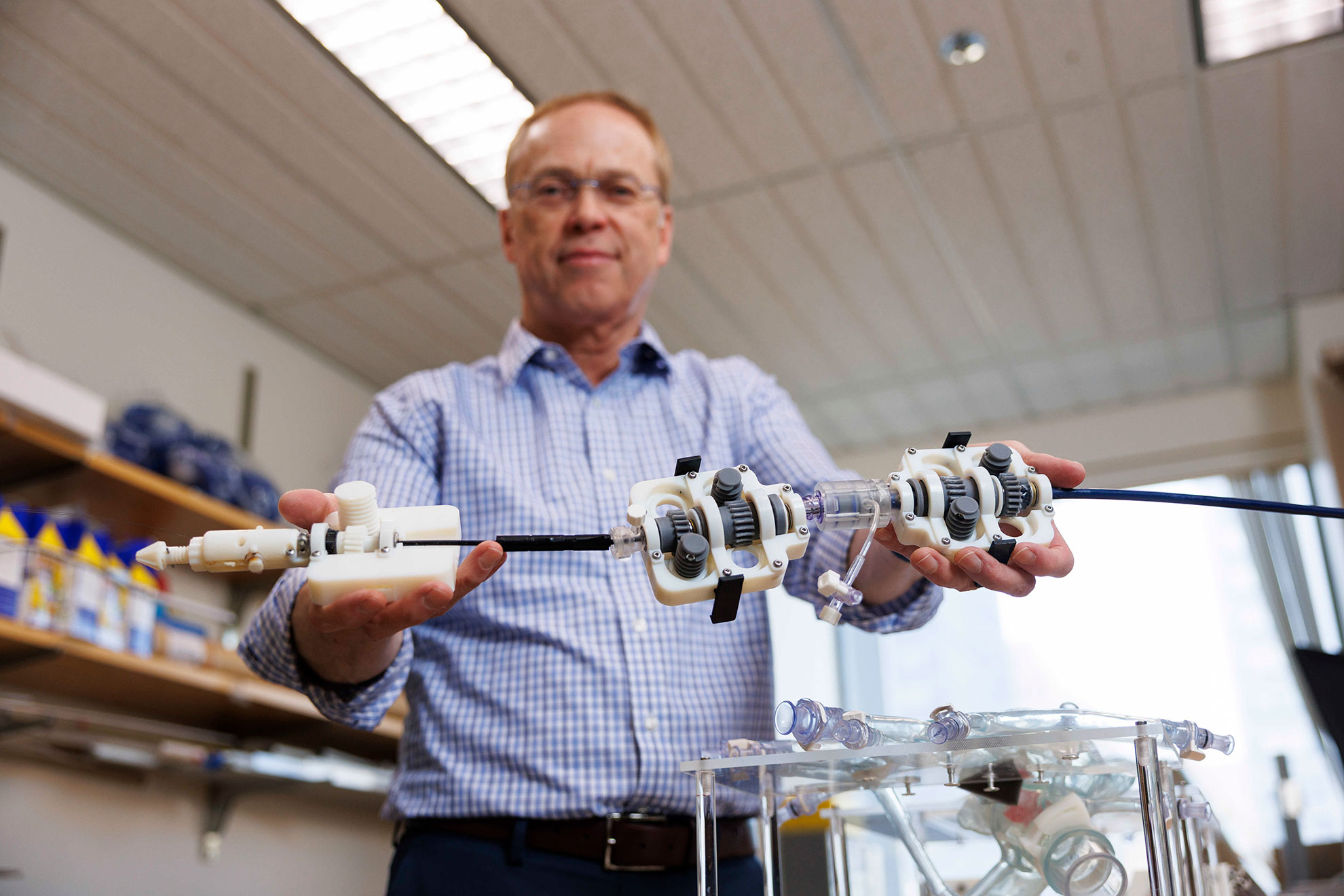
"Medical robots today are pretty dumb, typically acting as extensions of a surgeon's hands rather than taking over for them. Pierre E. Dupont, professor of surgery at Harvard Medical School, co-authored a Viewpoint article in the journal Science Robotics last month saying that autonomous surgical robots that learn as they go are on the way. But their likely impact will be to augment the skills of clinicians, not replace them, and to extend the reach of cutting-edge advances beyond the urban campuses of academic medical"
"You note that robot autonomy and learning system technologies are being used in manufacturing as well as medical settings. How does that work? Yes, in just about every other field, robots are used as autonomous agents to replace the manpower that would be needed to perform a task. But in many surgical applications, like laparoscopy, they're used as extensions of the clinician's hand. They improve ergonomics for the clinician, but there's still some question as to how much they're improving the experience for the patient."
Current medical robots primarily function as extensions of surgeons' hands, improving clinician ergonomics but offering limited patient benefit. Autonomous surgical robots with learning capabilities are emerging and are expected to augment clinician skills rather than replace them. Such systems could broaden availability of advanced procedures beyond urban academic medical centers to satellite hospitals. Teleoperation remains the dominant control mode in surgery, unlike other industries where autonomy replaces manpower. Telesurgery is growing as a hospital-economic strategy to link central hospitals with remote sites. Adoption hurdles include technical, clinical, and economic challenges before autonomous devices can operate widely.
Read at Harvard Gazette
Unable to calculate read time
Collection
[
|
...
]